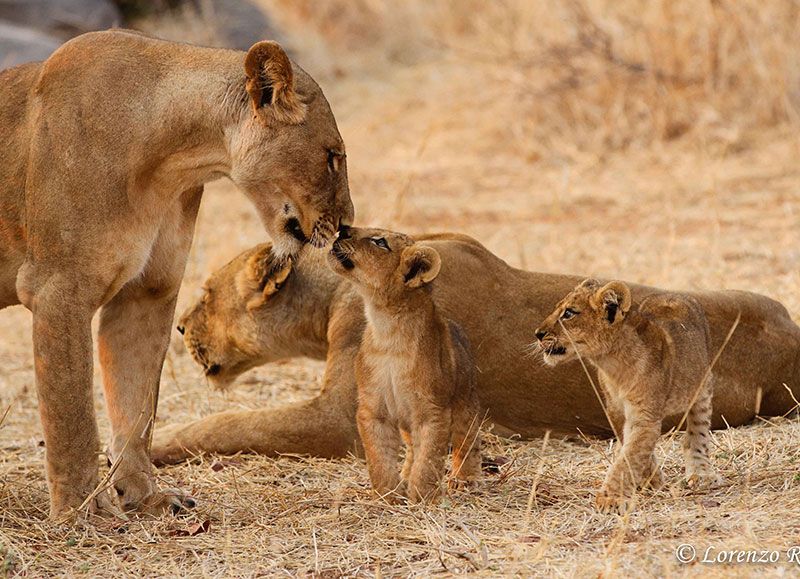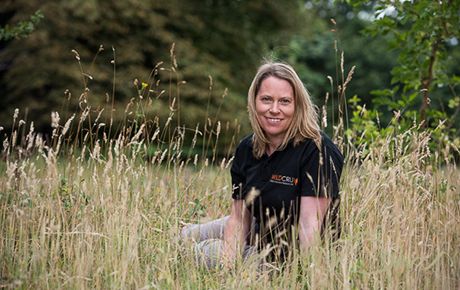International Women’s Day 2020: Amy Dickman


Ruaha Carnivore Project
Carnivores are the focus of Amy Dickman’s work in Tanzania. In Ruaha, she’s setting up initiatives so that local communities benefit from living alongside lions and other top predators. Amy has been awarded a PTES Conservation Partnership, as a global expert.
How did you come to lead your conservation team?
For some reason big cats in particular have always enthralled me. So my lifelong dream has been to become a big cat conservationist. There is something so magnificent about the power, beauty, and sheer wildness of big cats. I believe that we have a responsibility to make sure that human actions don’t wipe them out. So when I was looking for a study site for my PhD, Tanzania was an obvious choice. It hasn’t always been easy being a woman in charge of a conservation team though. In the beginning, as a single white woman in a remote part of Tanzania living in a tent studying lions, I was considered very strange indeed. Local tribes did not even really see me as a woman, as I did not play any kind of traditional ‘womanly’ role – I drove cars, I was the leader of a team of men, and I had no husband or children. People were genuinely concerned about me, and some Maasai women once offered me cattle in the hopes that it would help me find a husband! Interestingly, although we worked closely with the communities for many years, it was only when I became pregnant that some of those barriers broke down, as finally there was irrefutable proof that I was in fact a ‘proper’ woman!
What has been your biggest challenge so far?
Fieldwork is full of challenges. On my very first night in the field, a big male lion came and slept right against my tiny one-man tent, nearly crushing me and making me very scared indeed! Some challenges are expected, such as navigating terrible roads in bad vehicles, dealing with snakes, spiders, and charging elephants, and some are less so – I found it very frustrating how long it took to try to engage and build trust with the communities as such an outsider. Finally achieving that, and now working with the communities as true partners, is probably the most important challenge we have overcome.
There are personal challenges too —being so far away from my husband, children, family, and friends, eating beans and rice for 1000 meals in a row, and not doing the small fun things like seeing friends or going out for dinner. However, the benefits far outweigh the challenges, and I am always eternally grateful that I am able to have this kind of life and try to make some difference to wild cat conservation
What has been your biggest achievement in the field in the past year?
Local people are the most important partners we have in conservation, and they have to feel truly engaged. We found that one of the particular issues in our area was that the local tribe doing most of the lion killing – the Barabaig – felt very excluded from wildlife conservation. Simultaneously, the community were saying that they wanted better educational materials for their children, as a lack of literacy is a major issue. So during the last year we developed a storybook about a boy called Darem from the Barabaig tribe. It shows how he works with the project to help protect lions and other carnivores, thereby empowering his local community. It is of particular significance to local people from the Barabaig tribe, who are often marginalised and, to our knowledge, have never been featured in a storybook. It has been amazing to see that people read it and recognise that they are really at the heart of the conservation story in Ruaha – and it is their actions and communities which have such value and power.
What would you say to aspiring women who want a future in conservation?
I think that women need to truly take their place as equal decision-makers at all levels, and have the voice and the power needed to shape their own futures. We have come so far, but there is much more to be done – particularly in terms of empowering women in developing countries, and ensuring we all support one another to make the world a better place. It is also really important to believe in yourself, and to work together to achieve greater impact. We undoubtedly live in very challenging times in terms of environmental threats, but it is also the time when committed individuals can drive immense change. Look at Greta Thunberg: she was passionate and started her protest alone on the steps of the Swedish Parliament, and now has inspired millions of people and is driving real global change. You have more power than you think you do – follow your dreams, be supportive of others, keep going through the hard times and you can really make such a difference.
